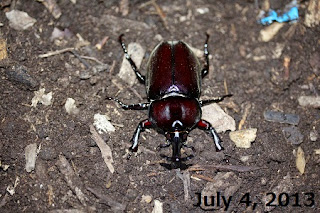Biological monitoring in "Kasai Rinkai Suizokuen"
I visited Tokyo Sea Life Park "Kasai Rinkai Suizokuen" to see biological impacts of Fukushima Daiichi nuclear power plant accident. Though I have visited various places in Japan to see the health consequence of the accident, I have never found any effect against creatures in Japan.
Tokyo Sea Life Park shows us realistic and dramatic displays of freshwater and marine life not only from Tokyo, but also from around the world, even from the Antarctic. In the huge 2,200-ton tank, you can enjoy watching bluefin tuna darting swiftly around. The aquarium also exhibits sea birds including penguins, and giant kelp from California, US. The facility sits on the beach of Tokyo Bay and could be reached in half an hour by train from Tokyo station.
Generally speaking sea creature's growth is faster than human beings, so they are more sensitive to radioactive materials of the environment than us. Fortunately, they seemed healthy and I couldn't find any impact of the accident. Japanese stricter food safety law saves our lives successfully so people in Tokyo have no worry about food.
Posted by Yoshitaka Kiriake from Japan on (July 25, 2013) .
葛西臨海水族園では主に東京近海を中心に日本各地の魚介類を見ることができる。また世界の魚たちも展示されており、運が良ければ貴重な海洋生物の産卵を見ることができる。
How beautiful largehead hairtail is!
タチウオは美しい
コウイカの子
This baby of golden cuttlefish was born on April 2013.
The skin color mimics sand.
This is an adult golden cuttlefish.
This finespotted jawfish have eggs in his mouth.
This eggs were found on June 23, 2013.
メスはオスの口内に産卵し、オスが卵を守る。
"Kasai Rinkai Suizokuen"
The entrance of Tokyo Sea Life Park
About Tokyo Sea Life Park
We can see various fish of the world.
This is a tube snout.
nurseryfish
look down
Hawaiian cleaner wrasse
armored searobin
largehead hairtail
spotted ratfish
Arctic cod
splendid alfonsino
Japanese armorhead
bluefin tuna
redtail triggerfish
Penguins were flying in the water.
Scalloped hammerhead
2 years have passed since Fukushima Daiichi nuclear power plant accident. I have visited various places of Japan to see the health consequence of the accident. Fortunately I have never found any impacts by the accident among Japanese creatures. As far as I know, nobody has health problem which is caused by the accident in Japan.
As Tokyo is very far away from the nuclear power plant, people in Tokyo have no concern about the nuclear power plant accident. People in Tokyo have already forgotten the accident, because it is very far away from the site and radioactive materials cannot reach there. We know there is no problem for child birth and child rearing in Tokyo. So people in Tokyo are living without any concern about the accident.
I continue to visit various places in the Japan to see the effects of the accident, because I can meet various creatures which are more sensitive to radioactive materials from the environment. It is important to see their health for our safety.
Public Health Network in Japan














































































